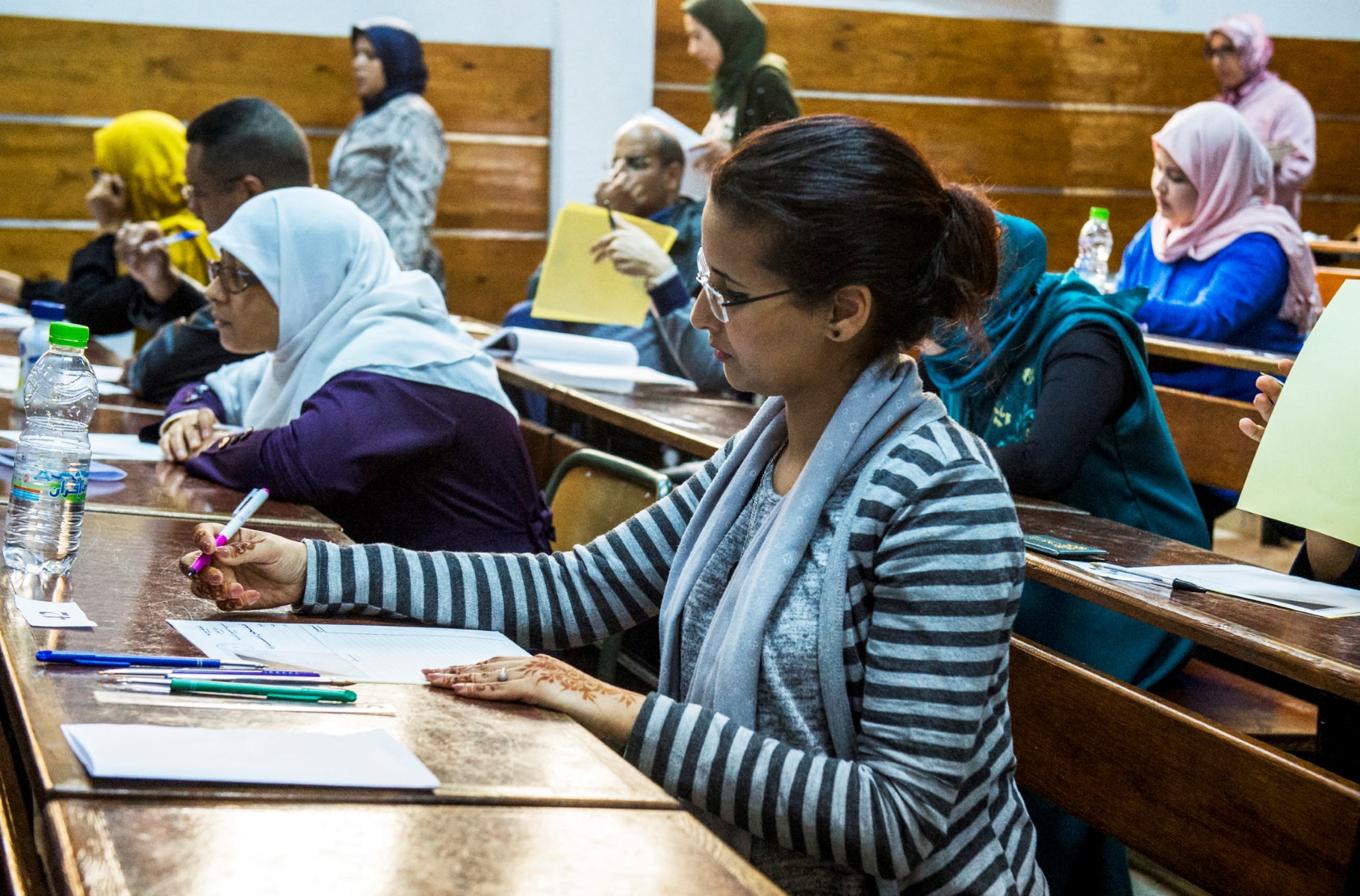Rabat, Morocco – Two decades after a landmark but limited revision of Morocco’s family law marked a breakthrough for women, activists hope new reforms will defy objections and provide greater equality.
The reform of the legal code was ordered directly by King Mohammed VI, who is expected to have the final say in any disputes over the new law.
A committee tasked with drafting the changes was formed in September and includes the justice minister as well as judicial and religious figures.
By the end of November, the committee had already received proposals from over 1,000 civil organizations, as well as political parties and official institutions.
Women’s rights advocates in the North African country have given a hopeful welcome to the plans.
Latifa Bouchoua, a member of the Federation of Women’s Rights Leagues (FLDF), said she wanted “a deeper reform (than the last) adapted to the aspirations of new generations who believe in rights and freedoms”.
Activists are demanding equality in inheritance, child custody, and a total ban on child marriage — none of which they say are guaranteed under the current family code.
Child marriages
The most recent reform took place in 2004 and was heralded as a breakthrough at the time. However, campaigners say the changes still failed to provide women with their full rights.
That code gave women joint responsibility for their families, which had previously been granted only to men, and imposed restrictions on unilateral divorce by men, polygamy and underage marriage.
However, the reforms fell short of preventing “injustice, discrimination, and legal violence, whether in the text or in its application,” said Samira Muheya, president of the FLDF.
In the summer of 2022, King Mohammed said in a speech Morocco needed to “address the deficiencies and negative aspects noted from experience” of the family code.
Under current legislation, women are entitled only to half of what men inherit, in line with strict interpretations of the Quran.
Polygamy remains legal, although it requires men to have the written consent of their first wife. Only 0.3 percent of marriages across Morocco in 2022 were polygamous, according to officials.
In a divorce, men receive custody of their children by default, while those mothers who do gain custody of their children lose it immediately if they remarry.
The key demand made by activists is an end to child marriage. While the legal age for marriage was raised from 15 to 18 in 2004, the authorities continue to issue exemptions for underage girls to marry.
A study by the public prosecutor’s office found that 85 percent of all requests to marry an underage girl submitted between 2011 and 2018 were approved.
Atifa Timjerdine, vice-president of the Democratic Association of Moroccan Women, told AFP that the issue “embodies… the discrimination of the law and raises great concerns”.
Religious objections
Supporters of women’s rights said that gender inequality in Morocco covered much more than family issues alone.
Writer Ahmed Assid said the forthcoming reform should go beyond household rules and aim to “change the patriarchal system” as a whole, which he said was “responsible, for example, for widespread unemployment among women, even as girls represent around two thirds of baccalaureate winners each year”.
Nearly 35 percent of women with a university degree are unemployed in Morocco, compared with a rate of 20.8 percent among men, according to official figures.
Nevertheless, there has been vocal opposition to the idea of liberal reforms, especially from religious groups.
The calls for equality and banning underage marriage and polygamy drew strong objections from within the country’s Islamist organizations, which maintain that such practices are drawn from a traditionalist interpretation of Islamic texts.
Al Adl Wa Al Ihsane, an Islamist group that is officially banned but to which the authorities turn a blind eye, insists on “the supremacy of the Islamic reference system” and rejects “any proposal that contradicts it”.
The Islamist Justice and Development Party (PJD) said it would only accept amendments to the law that fitted within “the Islamic framework”.
The FLDF’s Muheya insisted that campaigners’ demands were compatible with an “enlightened” interpretation of Islamic texts, and pointed to the principle of equality enshrined in Morocco’s 2011 constitution.

